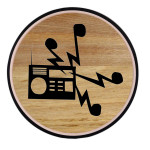Important Factors Affecting Listening Comprehension – the Only Two That Matter If You Want to Understand ASAP

Listening comprehension is quite universally known to be one of the most, if not the most, demanding language skill.
A lot of learners struggle for many years to be able to understand even 90% of a conversation. And it gets worse. The number of language learners who are capable of understanding almost every word they hear amounts to a few percents.
All The Factors Affecting Listening Comprehension
Listening comprehension is a quite complex beast as it consists of lots of smaller sub-beasts, or sub-skills if you will. As you will see in a moment, almost everything can affect your level of listening comprehension.
1. Your pronunciation
This is the exact reason why you might understand a typical accent from a given country but you will struggle with a dialect. Simply, at this point, your internal representations are not broad enough to encompass new external representations.
Read more: How to improve your pronunciation.
2. Your grammar
It’s much more difficult to understand the deeper meaning of an utterance if you don’t know how different words come together. Don’t worry. You don’t have to concentrate on learning every single grammar construction in your target language. Simply start with the functional grammar.
3. Knowledge of how sounds merge or get reduced
Unfortunately, not everything is what it seems. It certainly seems to be the case with sounds. In almost any language there is a tendency of different sounds to be reduced (e.g. vowel reduction) or to be merged (read more about phonological changes).
If you don’t grasp how these changes happen, it will take you much longer to decipher the ongoing stream of speech.
4. Your overall listening time
5. Visual support
6. Vocabulary size
It’s as clear as day. The more words you know, the easier it is to fish them out of a recording. If your current vocabulary is, say, 1000 words and you can’t figure out why you don’t understand much, this might be the reason.
Read more: The Word Substitution Technique – How To Increase Your Vocabulary Size Considerably.
7. Concentration
The Two Most Important Factors Affecting Listening Comprehension
It’s always crucial to know what constituent of some skill is the most important. Skills are difficult enough as they are. However, without any semblance of prioritization, you might spend too much time floundering about desperately.
You might think about what I am about to propose to you as yet another application of the Pareto principle.
As a reminder:
The Pareto principle (also known as the 80/20 rule, the law of the vital few, or the principle of factor sparsity) states that, for many events, roughly 80% of the effects come from 20% of the causes.
And, as you will shortly see, even among these two, there is one which is clearly more important.
1. The total amount of listening practice

Photo by Volkan Olmez on Unsplash
2. The size of your vocabulary
There is a very good reason why the name of my language learning course is Vocabulary Labs and not something else.
The size of your vocabulary is the most reliable predictor of language progress there is. Without knowing a lot of words, improving your listening comprehension will prove very difficult.
Let me demonstrate it.
First, improving your listening comprehension can be understood as:
- getting used to the prosody of your target language
- picking up words you know from the ongoing stream of speech
What’s more, we know from the literature that for most languages, 3000 words allow you to understand about 95% of most ordinary texts (Hazenberg and Hulstijn, 1996). 5000 words, in its turn, will enable you to understand about 98% of most ordinary texts (Nation (1990) and Laufer (1997))(read more about levels of comprehension and vocabulary size).
It’s somewhat agreed that getting accustomed to the prosody doesn’t take that much time. That leaves us with the second task you have to face: fishing out words from the stream of speech.
If your vocabulary size is 200, how many percents of words are you able to pick up?
Calculate Your Listening Effectiveness
Let’s calculate this, and let’s treat 5000 words as our perfect reference point as this number of words would allow you to understand most of the things you would hear.
200/5000 = 0.040 = 4%
We have arrived at the number 4% but what does it really tell us?
It means that your listening effectiveness per 1 minute or hour of listening practice is 4%.
So yeah, you can spend hundreds of hours trying to improve your comprehension, but it may turn out that it won’t change too much.
What if you started listening to recordings with the vocabulary of 1000 words?
1000/5000 = 0.20.= 20%
At this point, your listening effectiveness would increase fivefold! Let me formulate it slightly differently – learning just 800 words can greatly increase your listening comprehension.
And this is the exact reason why I advocate listening practice only once you master at least 2000 words (or even more). Having such a vocabulary optimizes your learning time and allows you to progress much faster than others without having to waste more hours.
One exception to this rule (i.e., what drastically increases your listening comprehension)
Of course, keep in mind that my listening effectiveness model is simplistic in one aspect.
If you learn a language which is already similar to the ones you already know, your passive vocabulary knowledge will allow you to pick up words which are similar to the ones you are familiar with.
For example, if I decide to learn Russian, which shares about 40% of words with Polish, my starting listening comprehension will be about 40%!
However, that still means that if you increase your vocabulary size with the words you don’t, your listening effectiveness will go up even higher!
Important Factors Affecting Listening Comprehension – Summary
I first published my article “How to learn German from scratch to a B2 level in 5 months,” a couple of years ago. Back then, one statement of mine seemed to spark a lot of controversies.
I forbade Mathew to read and listen to anything for first three months. Actually, if you know how to acquire vocabulary, you do not context to do it. You can learn first 3-5 thousand words simply from frequency lists. It allows you to save a lot of time simply by not being forced to go through all those crappy dialogs in textbooks.
And I get it. This piece of advice went against everything most people have been taught in schools. It also contradicted almost every strategy proposed by my fellow polyglots. However, as time goes by, there seem to be more and more studies that confirm this theory.
Studies confirming the importance of the aforementioned factors affecting listening comprehension
[[ … ]] it was revealed that the ability of learners to make connections between highly common English words appears to be dependent on the number of words they know. The more words they know, the more connections they are able to identify. At present, it is not known whether this ability to make connections is a cause or a result of knowing the meanings of more words, or if it is a combination of both.
[[ … ]] it is also hoped that new avenues shall be explored that focus more deeply on what it means to know a word and the role of lexical retrieval and memory in L2 lexical processing. At present, to its detriment, the field of L2 vocabulary studies remains remarkably insular.
The conclusion is as follows – if you want to improve your listening comprehension asap, you have to, first of all, increase your vocabulary size. Only then does it make sense to devote a lot of time to listening practice.
My advice to you is this – if you want to improve your listening comprehension, you should concentrate on expanding your vocabulary size first (don’t forget about mastering functional grammar). Only then should you gradually increase your overall listening time while still increasing the numbers of words you know.
Do you agree with my theory that the vocabulary size is the most important factor affecting listening comprehension? Let me know in the comments!
Done reading? Time to learn!
Reading articles online is a great way to expand your knowledge. However, the sad thing is that after barely 1 day, we tend to forget most of the things we have read.
I am on the mission to change it. I have created about 25 flashcards that you can download to truly learn information from this article. It’s enough to download ANKI, and you’re good to go. Memorizing things like “internal phonetic representations” can be really easy!












Hello.
In some cases, you may know the vocabulary that is in what you are listening to but you’re brain doesn’t process it quick enough for you to have a good understanding of the material. I think in this case we can speak of cognitive factors. But I think it has something to do with grammatical skills as well, especially in your own language. Maybe it has something to do with how you access the words in your brain: when you’re listening to concrete words, when you visualise what is being said, you access the sense of the word quicker than if you have to remember a definition?
I’m wondering how a person who processes information slower than the average person can do to improve his listening skills in a foreign language (or even in his own?) to understand what is said at a normal pace. I know someone who has improved a lot at that and who had slight cognitive difficulties, so I guess it is possible.
I agree – cognitive factors or genetics always have an impact on every single area of our lives, but this knowledge doesn’t help anyone improve anything. Most of the time, it’s just a dry fact for me that doesn’t change anything.
Grammar also is important, but I do mention it in the article.
“Maybe it has something to do with how you access the words in your brain.”
You’re absolutely right. Just priming your brain before listening to a recording can make a lot of difference. The same goes for reading the text first and then listening to it.
“I’m wondering how a person who processes information slower than the average person can do to improve his listening skills.”
It’s hard to comprehend for lots of people but accumulating knowledge is a game-changer in this situation. For example, the more languages you know, the easier it will be to understand the other because vocabulary, grammar constructions and phonology begins to overlap. This is one of the reasons why the total amount of listening practice is so important.
enjoyed going through your write up. Also it helped me a lot in doing my assignment, but the question here is I find it very difficult in understanding the points the speakers share by using high vocabulary words. Thus I always prefer reading or listening to simple English. By the way English is my L2.
I am glad you have enjoyed it! Please take a look at other articles. Plenty of them concern learning vocabulary 🙂
I totally agree that extensive listening is inefficient at the beginner and intermediate levels. Thinking about this though, I wonder if listening to simple dialogues has purely motivational benefits for students who are learning their first foreign language. I mean, I love your approach to learning languages, but I already have experience with the more traditional and mass-market tools and I understand their shortcomings. If I were advising a friend who had only studied language in school, what would you recommend for helping their motivation and determination with the process?
Thank you, Ben! My philosophy is always the same. First, I explain what the optimal combination for learning as fast as possible is. Then I elaborate that the learning process does not need to follow the optimal path all the time. For example, I wouldn’t recommend reading to anyone, especially for beginners, as a good learning strategy. However, I would still mention that they can do it anytime they want (especially if they like it), but there needs to be understanding that this fun is almost always at the cost of their progress.
Great article!
Thank you, Adrian!
This has given me lots to think about in terms of listening to languages in which I have very little vocab (Mandarin, just for starters), so thanks for that! You have convinced me not to waste my time at that level. I am still a little confused because I have felt myself making progress in beginner’s Italian by listening to prepared materials. Then again, those materials (including easy stories and a “Conversations” series by Olly Richards, which I’ve really enjoyed) aren’t authentic. They are controlled, with limited vocab.
But my real question is asking your advice about those cases where vocab is definitely not the problem. When I watch a movie with subtitles in Spanish, I recognize every word — I can read most materials with ease — but I still have lots of trouble watching without subtitles. I assume this means I just need more practice/exposure, even after years of living/traveling in Spanish speaking countries, listening to authentic podcasts and so on. Do you have any estimates, however rough, for how long a person who is forever poised around upper B2 (CEFR) C1 (SIELE) should need to practice active listening before achieving real progress? (Two way conversations are not as hard as watching a movie or listening to radio.) I suppose I am looking for hope, but quantifiable evidence or even anecdotal advice is much appreciated.
My pleasure! Listen, any method, if you stick to it long enough, will produce results. The matter is whether they were worth the time. In your case, simple more practice could be the case. However, another big problem for many is not knowing how sounds merge. I would look into it as well.
I can’t tell you how much one needs to practice active listening before achieving real progress. No one can. It depends on your individual traits, how many languages you know, how closely they are related to languages you’re learning, and so on.
I’m not saying active learning isn’t better necessarily, but whether immersion and listening practice (which is a form of active learning) at the early levels makes much of a difference. If a student has the exact same process of learning vocabulary as another student, but actively watches tv or reads at the same time for an additional hour every day, will they progress any faster? If you can direct me to research that demonstrates this control, I’d love to read about it (Obviously I know about research about incidental learning at 98% vs 95% and lower).
Another thing I think about is that it is extremely common for people’s reading ability to be at a much higher level than their listening ability (no matter the language, how close it is to their L1 or their level). That’s why people rely on reading subtitles as a crutch to understand L2 media. This to me implies that there is few media that one couldn’t learn something from (or at least improve with). If you can read it, it seems to me it is just a matter of training your ear to recognize it.
That being said, none of this really matters that much other than for purely academic reasons. There are likely way too many variables to 100% optimize the path to a high level of language ability. As long as you are learning vocabulary efficiently and immersing extensively at some point, I imagine the differences will work itself in the end.
Oh, now I know what you mean! 🙂 I think I misunderstood your previous comment! There is probably some research about this somewhere.
And I fully agree with your statement. I actually wrote an article about it: https://www.universeofmemory.com/active-and-passive-learning/
As for variables, I agree. There are a lot of them but you don’t have to optimize everything. It’s enough to concentrate on the most important aspects of learning. However, the more things you optimize, the quicker you will learn.
I have some mixed ideas about this. Currently I know around 2500 words in my L2 (it’s approximate because not all notes in Anki represent totally unique words, some conjugations of the same root words, and so on, not to mention any words I know passively from reading and listening). It does honestly feel like the more words I learn from a frequency dictionary, the better my listening comprehension gets. On the other hand, if I watch a tv show an additional time, even without learning new vocabulary, I tend to understand and pick up more every time. This to me implies that there is plenty of “low hanging fruit” to learn, just if your ears get used to it. This also implies that there is an unconscious element to understanding and listening ability. It’s almost as if your brain is working on it in the background to try to understand it for next time.
At the end of the day, as long as you’re doing both things (listening practice and vocabulary acquisition), you will get to the same goal, and the question is just about efficiency and overall enjoyment of the process. Maybe pick new students and do an experiment to see if listening and reading earlier makes any difference in the speed of their learning compared to the other student. I have a suspicion it would, but not by a massive amount. 🙂
Hi Justin! Thank you for the great comment 🙂 Like I said, your ability to understand your L2 is modulated by any kind of information from your long-term memory. Especially your knowledge of other languages which are similar to the one you’re currently learning. I don’t know any Chinese but I’m pretty sure there won’t be any low-hanging fruit for me if I decide to listen to it after learning 100 characters.
As for the experiment, I know the answer. I have had plenty of these experiments and at early levels, active learning always wins. Anyway, there is so much research about it that my input here wouldn’t change anything 🙂
I love your concept of listening effectiveness! Thanks!
Thank you 🙂 Glad you enjoyed it!
Hey Bartosz! I completely agree with this article – it corresponds well with my experiences from learning Japanese and other languages. I do however find that listening exercises at a low level are less inefficient when it comes to a language more similar to any that I already master 🙂 But with Japanese my early listening exercises didn’t yield any notable results 🙂
Keep up the amazing work,
Jesper
Hi Jesper! Then we definitely agree on most of the things here 🙂 Thank you for the comment and take care!:)